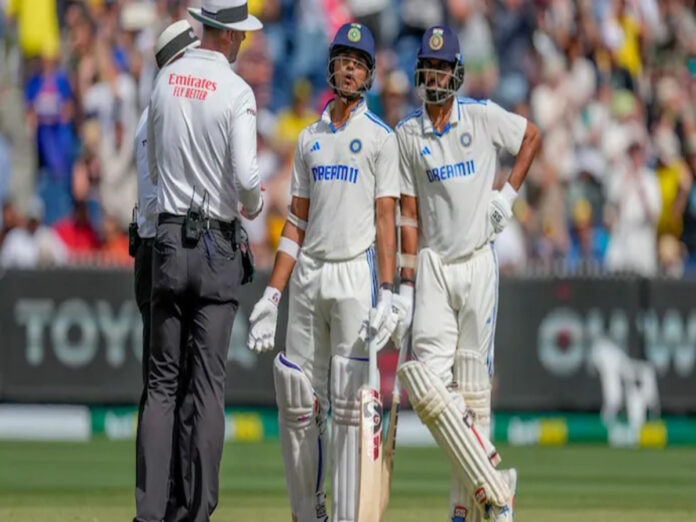In a highly controversial moment during the 4th Test of the Border-Gavaskar Trophy between India and Australia, Yashasvi Jaiswal was dismissed in a decision that has sparked significant debate among fans and experts.
The third umpire responsible for this contentious call was Sharfuddoula Saikat, hailing from Bangladesh.
Who is Sharfuddoula Saikat?
Sharfuddoula Saikat made history by becoming the first Bangladeshi umpire to be included in the International Cricket Council’s (ICC) Elite Panel of Umpires in 2022.
His appointment marked a significant milestone for Bangladeshi cricket, showcasing the growing recognition of umpires from the country on the international stage.
Saikat has an extensive officiating background, having started his career in 2006. He has since overseen numerous matches across formats, including 10 Tests, 63 ODIs, and 44 T20Is.
The Controversial Dismissal
The incident occurred during India’s second innings when Yashasvi Jaiswal was batting on 84 runs.
He attempted to play a pull shot off a short delivery from Australian captain Pat Cummins but appeared to glove the ball, which was caught by wicketkeeper Alex Carey.
Initially, on-field umpire Joel Wilson ruled it not out. However, Australia opted for a review, leading to Saikat’s involvement as the third umpire.
Despite the Snickometer showing no clear spike indicating contact with the bat or glove, Saikat ruled Jaiswal out based on what he perceived as visual evidence of a deflection.
This decision was met with immediate backlash, as many felt that the absence of conclusive evidence warranted giving the benefit of the doubt to the batsman.
Jaiswal himself expressed his frustration by confronting the umpires before reluctantly leaving the field.
Reactions and Implications
The decision has led to widespread criticism from fans and former players alike. Notably, cricket legend Sunil Gavaskar described it as “an optical illusion,” questioning the reliability of technology used in such critical decisions.
Many fans took to social media to express their outrage, labeling the decision as unfair and demanding accountability from match officials.
This incident not only highlights the challenges faced by umpires in making split-second decisions but also raises questions about the effectiveness of current technology in cricket.
The reliance on visual evidence over conclusive audio signals has been particularly contentious, prompting discussions about how technology can be improved to ensure fair outcomes in future matches.


